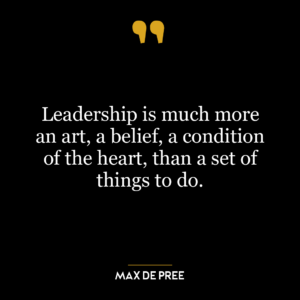This quote emphasizes the importance of optimism and hope in leadership. Essentially, it suggests that a leader’s primary role is to inspire and motivate, to help their followers envision a promising future. This future may not yet exist, but it’s the leader’s job to make it tangible and achievable in the minds of the people. The leader, therefore, becomes a “dealer in hope,” trading in optimism and the promise of a better tomorrow.
In the context of a nation, this could mean painting a picture of economic prosperity, social equality, or international respect and influence. A leader must be able to articulate this vision in a way that resonates with the people, making them feel that it’s not only desirable but also possible. This then fuels their motivation to work towards these goals, even in the face of challenges and setbacks.
In today’s world, this idea is more relevant than ever. With the numerous global crises we face, from climate change to political divisiveness, leaders who can provide a hopeful vision for the future are desperately needed. They must be able to look beyond the current problems and help their followers see the potential for positive change. This requires not just charisma, but also empathy, strategic thinking, and the ability to communicate effectively.
On a personal level, this concept can be applied to any situation where one is in a position of leadership, whether that’s as a manager in a company, a coach of a sports team, or a parent in a family. It’s about creating a positive vision for the future, and then inspiring and motivating others to work towards that vision. It’s about fostering hope, even in the face of adversity, and helping others see that they have the power to affect change. In this way, a leader can help to cultivate resilience, perseverance, and a sense of purpose among their followers.










